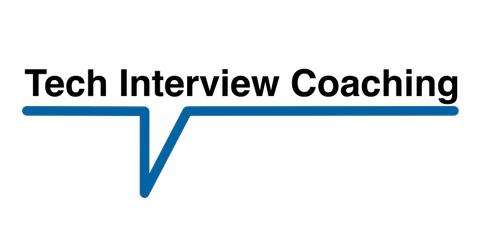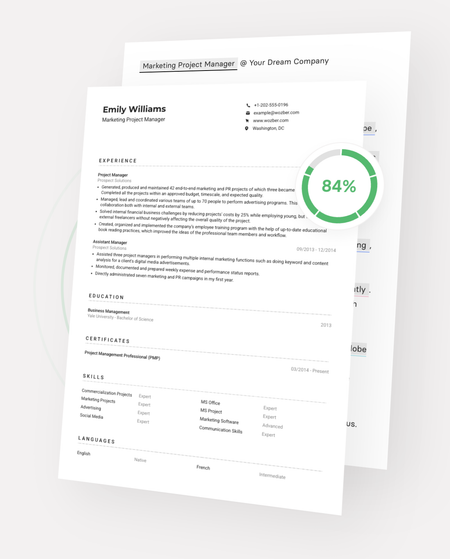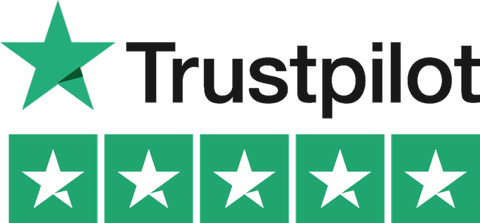
Ultimate Guide to Preparing for Data Analytics Interviews
Whether you're a beginner straight out of a bootcamp or a seasoned analyst, our comprehensive insights will ensure you're fully prepared for any data analytics interview. Get ready to impress potential employers and secure your dream job in data analytics!
About the author: Data Science Manager at Rover.com, passionate mentor helping candidates thrive and build high-performing teams. Book time with them here.

Preparing for a data analytics interview can be a daunting task, but with the right guidance, you can approach it with confidence. In this ultimate guide, we cover essential tips and strategies to help you succeed, from mastering key concepts to acing technical questions. Whether you’re a beginner straight out of a bootcamp or a seasoned analyst, our comprehensive insights will ensure you’re fully prepared for any data analytics interview. Get ready to impress potential employers and secure your dream job in data analytics!
1. Understand the Role
As a first step, you will need to understand not only the data analyst role in general but the specific role you’re applying for and tailor your preparation to showcase your experience or skills in those areas.
In general, analysts are responsible for tasks such as:
- Exploring data sources to discover patterns, usually using SQL to manipulate data and documenting findings in written analyses.
- Producing compelling and understandable data visualizations. Those can be ad-hoc analyses telling a specific story or dashboards that are used continuously to track the performance of a specific program, feature, or business metric.
- Creating BI data models in SQL that summarize and clean and aggregate raw data into reusable, reliable abstractions.
- Building and interpreting metrics.
- Designing and analyzing A/B tests.
But the specifics will depend on the exact role that you’re applying for. These are some common types of “specializations” in data analytics, and some common skills they will require.
-
Product Analyst: Probably working with a specific product/engineering team; lots of SQL, analysis of clickstream events, and most likely A/B testing.
-
Operations Analyst: Working with various operations / customer service stakeholders to help establish data collection process, unify definitions, process data from disjoint sources, and create final reports; most likely to work with messy data and requires good communication skills to enable processes that will yield usable data.
-
Finance Analyst: Works with finance / accounting teams; most likely to use Excel; high attention to detail is very desired; best if you’re excited about staying on top of financial data.
-
Marketing Analyst: Most likely works with CRM, SEO, or Paid marketing teams to help determine optimal channels and spend strategy to attract new clients, analyze the impact of once-off campaigns; most likely to use diff-in-diff and causal impact methods, so some level of Python and statistics is desired.
-
BI Analyst: Depending on the company, a BI analyst might work with some specific teams or might serve the data pipeline and dashboarding needs of various teams; strong SQL, data visualization skills are required (Tableau, Looker, Power BI), and experience with tools like DBT is an advantage.
-
Data Analyst: Jack-of-all trades; probably the first data hires in a smaller company, before there is differentiation in the types of data analytics roles; strong SQL is a must, and a bit of experience in all the areas mentioned above could be beneficial
-
Business Analyst: This is the only analyst position that might not require SQL (but check the job description!); usually hired to support a specific business line and perform data analysis for them; might do other tasks as well, such as competitor analysis, addressable market analysis, etc.
Read the job description thoroughly and decipher which “flavor” of analyst the company is looking for (this might require reading between the lines, in some cases). Sometimes a position might be advertised as simply “Business Analyst” or “Data Analyst”, but once you carefully read the job description, you can figure out what type of skills you should be highlighting in your CV or cover letter.
For example, a role that is meant to “support engineering and product leaders in designing experiments and analyzing user behavior” is most likely a Product Analyst position, and you should search for interview questions specifically for Product Analyst roles.
2. Research the Company
Once you figure out what the role you’re about to apply to is really about, I recommend you do some research about the company itself. This will help you to understand the types of problems you are most likely to be tasked with solving, as well as what the interview questions might be about.
For example, if the company is a two-sided marketplace, you might be tasked with designing or analyzing experiments that have geographical interaction effects. Or if the company is a subscription-based B2C digital product, you might be performing analyses on user activation, predictors of churn and user segmentation. Think to yourself, “If I’m a business leader working in this company, what are my most important problems? How can an analyst help me?”. Jot down a few problems (sometimes the job description even lists some). If you’re going to write a cover letter (and I really recommend you do!), try to give at least one example of how you are best suited to solve one of these problems.
Then, search for information online on what the interview process might be like in this company. An obvious place to start is Glassdoor, where you can see anonymous reviews of the interview process. Sometimes past interviewees even write down questions they were asked. The interview process might have changed slightly over time, but chances are that the process and overall approach doesn’t change much.
Finally, search for the company on Google and go to the News tab. Are there any major recent developments? Was the company recently acquired, did it launch a new product, or did it receive a new line of funding? This might affect the specific projects you’re going to work on but also gives you ideas for questions for you to ask during an interview.
3. Prepare for the first phone-screen
You sent in your CV and got invited for a phone screen with a recruiter – great! This first screening call is usually meant to give you a first contact with someone in the company before sending you an impersonal take-home assessment (or, less frequently, a timed online assessment), and it’s your chance to ask the important logistical questions as well as give a brief intro of yourself.
Make sure to ask about:
- Salary range
- Expected start date
- Seniority level
- Most important skills to succeed in this role
- Recruiting process
You will also likely be asked to either introduce yourself or talk about an impactful or favorite project. If it’s an introduction, focus on the relevant parts only and try to keep it under 5 minutes. If the recruiter needs more information, they can ask you to elaborate. If you’re asked to talk about a project, try to choose one that was impactful or where you had direct oversight (if both – even better) and practice following the STAR method (more on this later). Practice being succinct and transmitting only the relevant information – remember, in these screening calls, the recruiter often doesn’t have the domain expertise to directly assess whether your project was technically sophisticated, but they are very likely asked to screen out candidates with poor communication skills (extremely lengthy answers, failure to get to the point, no focus on impact, not providing necessary context).
Pro tip: record yourself introducing yourself and play it back. Can you manage to keep it under 5 minutes? Did you give enough context? Would a non-technical person understand what you’re saying?
4. Understand the Recruiting Process
The recruiter phone screen also gives you the chance to ask about the process. If you don’t ask, you might not be told later on, so it’s good to ask upfront. A typical process might look like this:
- Recruiter phone screen: We covered this in the previous section. Usually 30 minutes.
-
Take home assessment / timed online assessment: Here you are either sent a take-home assessment that you can do in a few days or a link to an online timed assessment.
- If you are sent a take-home assessment, I recommend you take a look at the instructions the very first day and answer back with any clarifying questions you might have. The instructions might not be clear or there might be an actual mistake! Even if you are planning on completing the assessment later, over the weekend, it’s best to give the team time to respond to your questions. Plus, this shows attention to detail – an essential soft skill in an analyst!
- If you are sent an timed online assessment, try to learn as much as you can about the content before you “start” it. For both SQL and Python, you can brush up on your live coding skills online on HackerRank (SQL, Python) and LeetCode (SQL, Python - Pandas), and if it’s a general “aptitude” test, try to find example assessments like this by Googling the company and the position. The more of those assessments you do, the better you will perform, so you can maximize your chances of beating the clock by practicing against your best guess for the questions.
- Hiring manager interview: This is typically the first time you will meet your future manager and it’s your chance to ask as many questions about the content of the role as you can, as well as highlight the relevant parts of your experience for this specific role. Note that most likely no other interview after this one will give you the opportunity to learn about the specifics of the role, so take advantage of the time given.
- (maybe another live technical screen): This step isn’t standard, but there will sometimes be a live technical interview (most likely in SQL) or as a follow-up walk through to the take-home assessment.
- In the case of a live coding interview, remember that most likely you will be allowed to look up documentation online. Ask in advance what flavor of SQL the interview will be using, and look up any major differences between that and what you’re most used to (for example, LIMIT vs TOP, string functions, USING clause for joins, etc)
- In the case of reviewing the take-home assessment, review well what you submitted and be prepared to defend your choices! If there was a question about a statistical analysis (e.g., “perform an A/B test analysis on these simulated results”), make sure to brush up on p-values, statistical significance, power calculations, and be prepared to explain your results to both a technical and non-technical audience.
- Final round of interviews (2 to 4 1-hour interviews with 1 to 2 interviewers in each): These can really vary in the content, so I highly recommend you ask the recruiter and maybe even the hiring manager for as much detail as they can give about the structure and content of the interviews. Remember, if you’ve made it this far, they really want you to succeed! Nobody wants to waste the time of 6+ colleagues for a candidate that doesn’t do their best, so even if they don’t volunteer the information upfront, by asking for more details, you might be given a lot of additional tips. Typically these interviews will include a mix of behavioral questions and analytical case studies. We’ll cover more about those two types of questions in the following sections.
5. Brush up on your technical skills
Once you know about the technical skills required to succeed in the role and the technical interview process, you can spend some time brushing up on your skills.
- SQL:
- Basic to complex joins
- Window functions
- Using ‘spines’ for missing data
- Calculating aggregations and rates
- (advanced) DBT (if you’re not familiar with DBT, I highly recommend you check it out)
- Python/R:
- How to write a basic function
- Basic data manipulation (in pandas or natively in R)
- (advanced) Statistics questions: formulate a hypothesis and write a function to test this hypothesis (libraries like statsmodels or SciPy in Python might be helpful)
- Excel / Google Sheets: Although less common (SQL is the golden standard for any analyst position nowadays), you might be asked to perform an analysis in Google Sheets / Excel. Make sure to know where to find the documentation, if it’s not a tool you use on a daily basis!
- Data Visualization Tools: Although less common, you might be asked to build a dashboard; But even if this is not an explicit task in the interview process, it’s often an implicit expectation that your take-home assessment will make appropriate use of data visualizations to illustrate your analysis. You can practice with Tableau’s public server, which allows you to use the tool for free (or work in Python/R/Google Sheets).
- Statistics:
- Hypothesis formulation and translation into a scientific hypothesis (H0, H1)
- Z-test, chi-square test, p-values, alpha, beta
- Interpreting and explaining confidence intervals and results
6. Practice interviewing
Finally, the importance of practicing interviewing. There are generally two types of non-technical questions that you might be asked: behavioral questions and case questions (and sometimes shorter scenario-based questions).
The behavioral questions tend to focus on:
- Past job experience
- Technical and non-technical communication
- Data sense
- Culture/company fit
Behavioral questions
Those will lean heavily on your past experience and usually aim to answer whether you possess the skills usually outlined in the “Why we will hire you” section of a job description. They might also be connected with the company values – so don’t be surprised if you’re asked questions about a time that you gave feedback, a time that you disagreed with someone, or a time that you made a mistake.
You can find multiple interview question banks online, such as here, here, here and here.
Some of the most typical behavioural questions in data analytics interviews are:
- Tell me about the most impactful project that you have worked on. What was your contribution? Did you face any difficulties? How did you overcome them? What was the final output?
- Tell me about a time that you had to meet a tight deadline. How did you work against that? What was the last time you found out that you were really wrong about something important? Describe how you found out and how you responded.
- Tell me about a time that you had a disagreement with a stakeholder or business partner about an analysis. How did you convince them?
- Tell me about a time that you had to balance speed with precision. How did you make the trade-off? What did you have to sacrifice? How did you ensure that your final analysis / product was still up to standard?
- If I spoke with your previous manager and asked what was their favorite thing about you, what would that be? What example(s) would they give? How would the answer be different if I asked another team member instead?
The best way to answer those questions is to use the STAR method, which is a common framework for answering behavioral questions. You start by describing the Situation, then the Task you had to solve, describe the Action you took, and finally, the Results you achieved.
For example, if you’re asked the question “Tell me about a time that you convinced someone of your idea”, you could answer with:
- S: “Our company was experiencing a decline in customer retention, and there were differing opinions on how to address it.”
- T: “I needed to analyze the customer data to identify the underlying issue and persuade the management team to adopt a predictive analytics model I had developed.”
- A: “I proposed using a machine learning model to predict customer churn, something our team had not tried before. I gathered and cleaned the relevant data, trained the model, and tested its accuracy. I then created a presentation that demonstrated how my model could accurately predict churn and identify at-risk customers.”
- R: “After presenting my findings and the model’s potential, the management team agreed to implement it. As a result, we were able to proactively address customer concerns, leading to a 20% increase in retention rates within the next quarter.”
Case Studies In many interview loops you will be presented with “analytical case studies”. Those are often hypothetical problems that are meant to be worked out together and allow you to show off your problem-solving and analytical-thinking skills. Some example cases are:
- Imagine you are an analyst for Google Maps and you want to assess if it’s worth it to build a feature that detects recurring routes (e.g., home - office). How would you go about it?
- Imagine you work for AirBnb and you want to build a metric that will tell you if you have enough properties in a specific location to satisfy demand. How might you go about it?
- Let’s say you work for an online newspaper and you’re tasked with designing an A/B test that will introduce a paywall after the 1st, 2nd or 3rd article is read in a month. How will you do this?
Those cases usually take ~30 minutes and you can work with your interviewer to answer these questions (it’s not supposed to be a 30 minute monologue).
7. Resume and Cover Letter Tips
Here the general resume tips for any other tech positions apply, but I’ll highlight some specific details that I’ve noticed in my years of interviewing that can make or break your chances of ever getting an interview.
- Keep your resume to 1 page. If you’re coming from academia, still keep your resume to 1 page (and you can note in the bottom “full academic CV available upon request).
- Make sure you note any technologies that you have experience working with, perhaps in a separate section (side bar). This makes it easy for a resume reviewer to quickly make sure you fit at least the minimum skills required.
- Try to keep every job description down to 2-3 bullet points of 1 sentence each. The bullet points should highlight your personal contributions and focus on impact (not just “worked on an analysis” but “designed and led a customer retention analysis that led to 5% increase in annual revenue”).
- Use a legible font size. Many candidates try to squeeze in as much text as they can in a single page by minimizing the font size, but that makes it really hard to read. Save your resume as PDF, email it to yourself and open it on a 13 inch screen straight from the email attachment. Can you read it at a glance or do you need to zoom in?
- Make sure you are positioning yourself for success with each role you apply for! If your resume has a headline “aspiring product analyst” while you’re applying for a “marketing analyst” role, you might be overlooked because of the mismatch in roles. In general, these headlines are only useful if they exactly match the target profile of the role.
If you don’t yet have a lot of industry experience, I have two more pieces of advice:
- Try to highlight in your resume what makes you unique. Is it your amazing grades in university? Did you win medals in Maths Olympiads? Did you produce a really original Masters Thesis? Add those in prominent sections of your resume.
- Don’t be afraid to write a short and concrete cover letter, explaining in half a page or less why you’re really interested in the company and the role. No need to write 500-word cover letters (those are often very hard to read), but a short, personal and concrete note can go a long way in differentiating you from other candidates.
8. On the Interview Day
This might sound obvious, but making sure you show your best self on the interview day is essential. As most interviews nowadays are virtual, this means:
- Join the call on time (yes, being 1-2 minutes late leaves a bad impression). Choose a quiet spot with good lighting and good internet access. Background noise can be extremely distracting and make it almost impossible to focus on your answers and to assess your performance objectively.
- Check that your microphone and camera work well, in advance and that you have any necessary software installed (e.g., Zoom might require you to install the software and restart your laptop before you use it for the first time – you don’t want to come across this when you’re about to join the call).
- Prepare a long list of follow-up questions for the interviewers. If you know their names before the interview, you can look them up on LinkedIn and prepare some tailored questions to understand their experience. You never know – you might breeze through the questions the interviewer had already prepared, and showing you care about the role and the people you will be working with can only leave a good impression.
Conclusion
By following the tips and strategies outlined in this ultimate guide, you’ll be ready to tackle any data analytics interview with confidence. Remember to review the role, practice technical interviewing and also answering behavioural questions using the STAR method, and showcase your analytical thinking! With thorough preparation, you can stand out to potential employers and secure your dream job in data analytics. Good luck, and may your interview be a successful step towards an exciting career!
Additional Resources
SQL Practice
Analyst interview question banks
About the author: Tania Vasilikioti
Data Science Manager at Rover.com, passionate mentor helping candidates thrive and build high-performing teams. Book time with them here.
Get Started
Linkedin & Resume Makeover
We will optimize your Resume & LinkedIn with our expert review & rewrite services.
Coaching Sessions
Our coaches will work with you on detailed, tailored sessions to get you ready for any challenge.
Negotiation Support
We will be by your side to review your contract & negotiate the salary you deserve.
Client Testimonials
Success stories from professionals who transformed their careers

"Hande's coaching was transformative. She didn't just help me prepare for Amazon's rigorous interviews—she made the process human, boostin..."

"All coaches gave me great tools to boost my confidence for my next interview process. Would definitely recommend."

"Interesting design problem, as always good advices regarding behavioural questions. A very good test before actually doing an interview o..."

"The lessons and guidance were appropriate to my needs and the expertise was thorough. The coaching was effective with homework. I landed ..."

"My coach was very helpful with insights on what I should focus on going into my phone interview."

"Arpitha is a truly fantastic coach, and helped tremendously with every aspect of the interview preparation, knowing what I need to focus ..."

"I am extremely grateful for the time and effort that Andrea invested in helping me improve my system design interview skills, and I would..."

"The Team of Andrea, Hande & Arpitha has been so good to me over the last fortnight they are incredibly accommodating to adapt to your sch..."
Ready to achieve similar results?
Find Your CoachSchedule your free consultation
Pick a time that works for you. In a short intro we’ll understand your goals and map out a plan to win offers.
- Quick intro (15–20 min) — no prep needed
- Share your target roles and timeline
- Get a personalized prep plan and next steps
- We’ll suggest the best coach to start with



